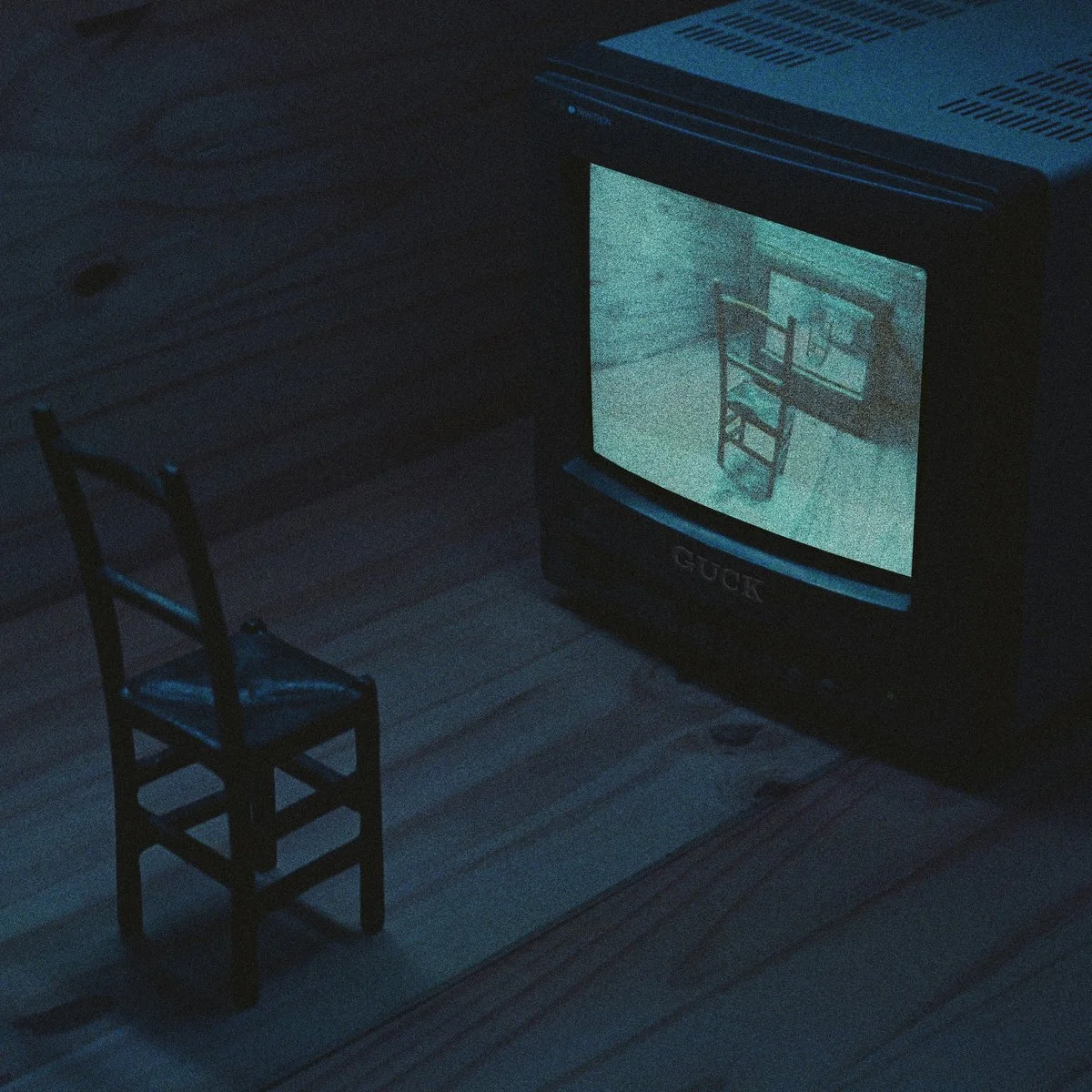by Devin Birse (@devvvvi.b)
Uncoiling and recoiling around an ever-shifting rhythmic core, listening to Guck feels like attending a show where you’re the sole audience member. The band's exquisite chemistry is matched only by their sonic density. Through synths, drums, bass, guitars, and vocals, the band seems to chart the entire history of noise rock. From the junkyard space punk of Pere Ubu, MX80 Sound, and Chrome to the squealing intensity of sasscore, and crushing grooves of post-hardcore. Yet tracing the forebearers only hints at glints of what Guck are doing. Glimpses of recognisable sights are swallowed into the ever-engulfing mass of the band’s whirring hurricane. Oh yes, listening to Guck makes you feel like you’re at a one-man show. Their synth-heavy post-whatever brilliance is so intense and unique that you often feel like you and you alone have stumbled upon it. But it’s also so chaotic, frenetic, and relentless that even as you wonder if the doors locked, if there’s no way out, you know that you will never be able to get past them. Guck feels like a one-man show in a garage with a broken door, a garage being sucked up into the eye of a hurricane.
That precise sort of maelstrom is far from common. Most bands aiming for such heights get lost in the muck of math rock complexity or pure noise decadence, yet Guck operate with a clear focus. The years spent performing live before hitting the studio have clearly paid off. There's an odd chaos magic to the band like that of Unwound or The Birthday Party. An ability to sway and move through dissonance with a near-impossible unity. Technical precision and bizarro experimentation merge into songs that work as both highwire technical showcases and noise rock blasts. Their sound reflects the various band members' backgrounds, with guitarist Chappy Hull having cut his teeth cranking out math rock riffs for Pile and Gnarwhal, while the rest of the band, outside of vocalist April Gerloff, were part of screeching sass-punks Prized Pig. Their mix of talents leads to a series of songs that shift and churn through tempos and genres. On songs like “Taz,” they verge into visceral white belt sass, “End of E.T.A.” transforms into a visceral brutal prog jam, and “Blue Collar Crime” stinks of new rave’s synth punk underbelly.
While that combination of oblique no-wave and complex riffs alone would make for an excellent group of noise-niks, the addition of Gerloff on vocals elevates them to something truly excellent. Her delivery lands in some long-forgotten badlands between the dada-ist squeaks of David Thomas and the nasally rage of Lydia Lunch. On “Gubar,” she starts off sounding like a cartoon character high on nitrous as she rambles out a series of “back in my day” creeds as the band lays out a solid crunching stomp. Yet when they shift midway through into a punishing groove, Gerloff unleashes her scream. It’s a thing of real beauty, landing between bloodcurdling and bewildering. The perfect amount of proficiency to avoid appearing amateurish but raw enough to feel real.
That fine line between precision and chaos is where truly great noise rock acts lie, and Guck are keenly aware of where to stand on that line. Lead single “IDGAG” begins as a synthy piece of dance-punk before rocketing off into a swirl of siren synths and shredding riffs. As an opening blast, it laid out the band's core sound, but it’s a great distance away from the churning synth sludge of opener “Gucked Up” or the pure doomy menace of “Void Hill.” Like their post-punk forebearers, there’s a clear anxiety in Guck's music, but for the bands of the 80s that was a mere cut; with Guck it’s a festering wound. Gerloff’s lyrics are often hidden under her delivery, but when they do emerge, they’re visceral.
Despite the tongue-in-cheek wordplay, these are angst-ridden screeches against the failure of the world. Yet rather than speaking from herself, Gerloff instead assumes the rhetoric of the condescending and passive zen fascists who sit back and watch the destruction. At points, this style begins to mirror the ill-mannered satires of Arab On Radr or Blood Brothers, but there’s a reason so many of the songs start as dances and end as dirges. Across Gucked Up, it’s made clear that we were a bit too far for jokes, for satirical pop songs about how oblivion is incoming. At some point or another, the truth must emerge, and the truth is screeching. But even though Guck’s music may be ugly, it’s also undeniable. Forgoing the sludge and oppressive misery of the recent noise rock revival, Guck have crafted a flaming slab of mania, an album that may dance with the rhythms of a broken police siren and screams like a doomsday preacher.

